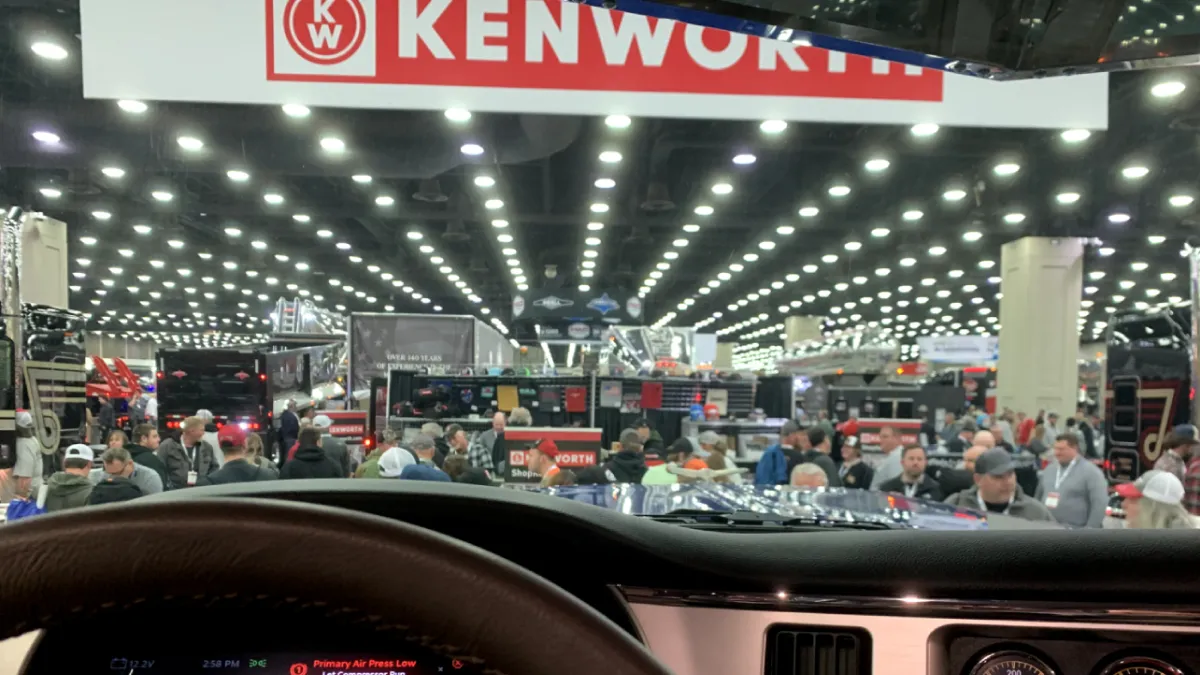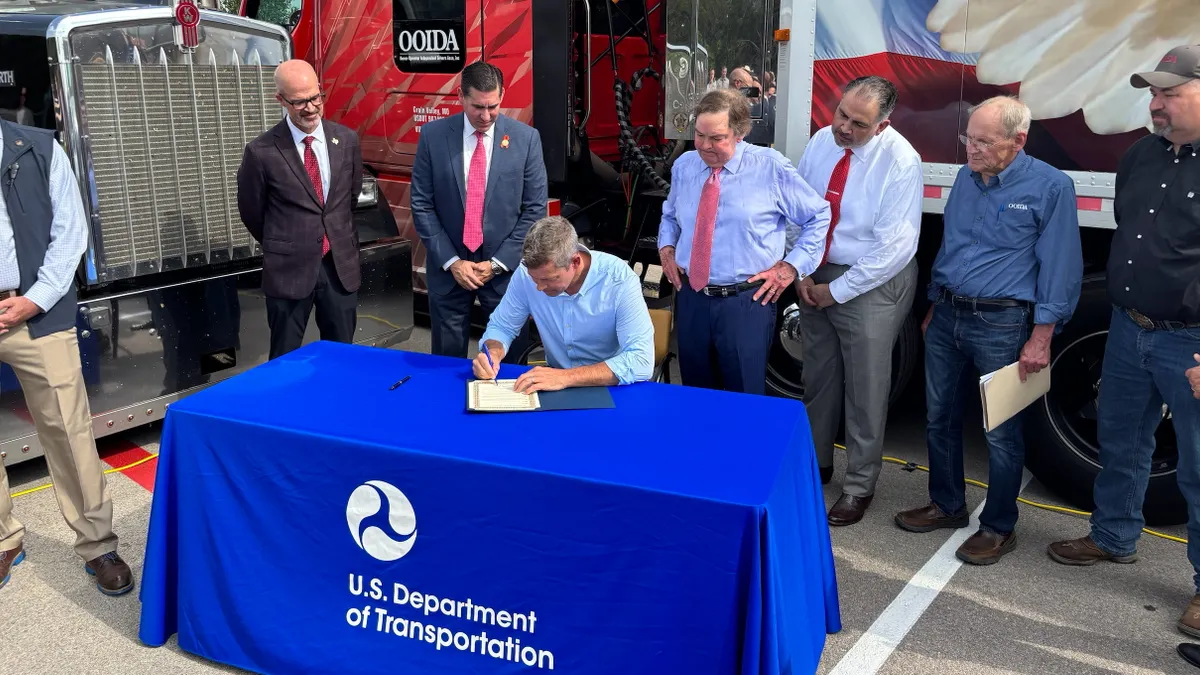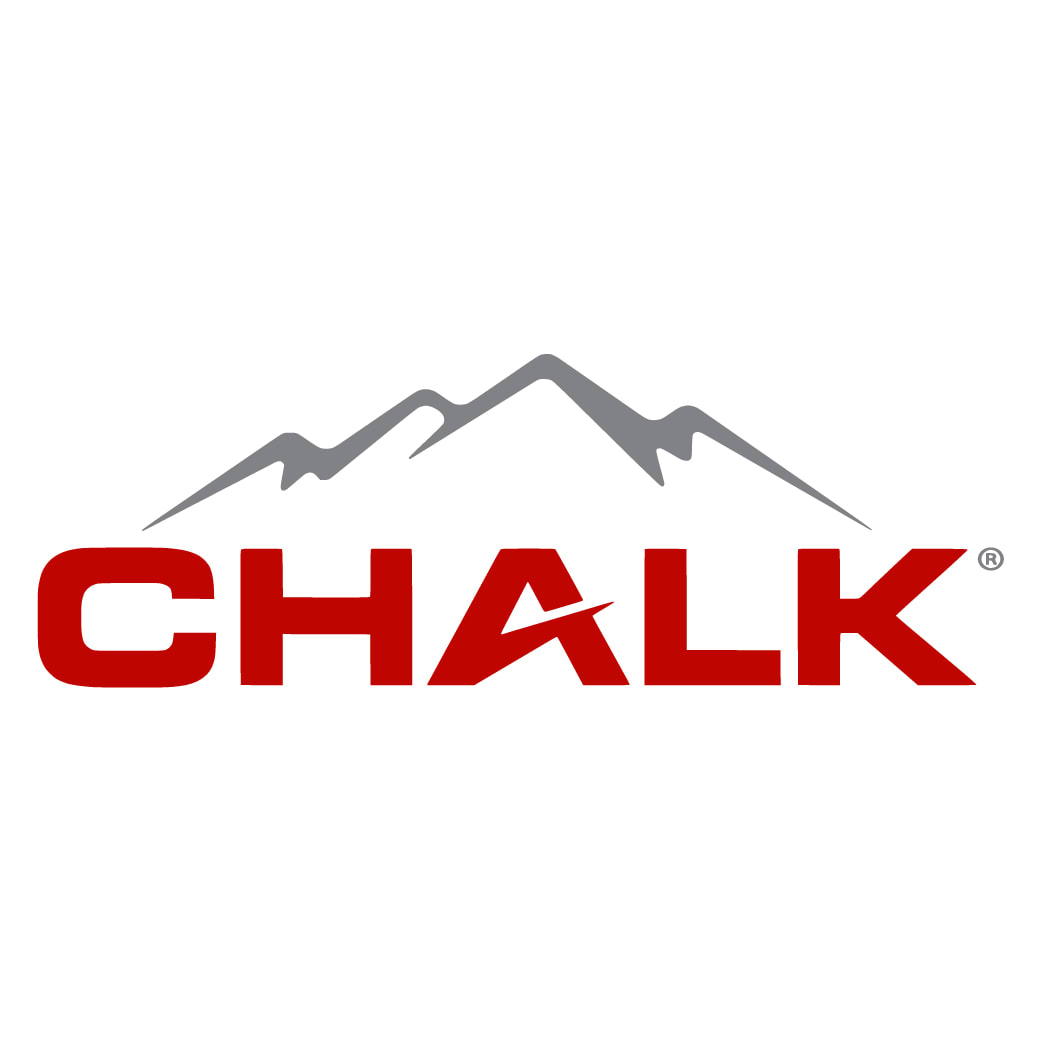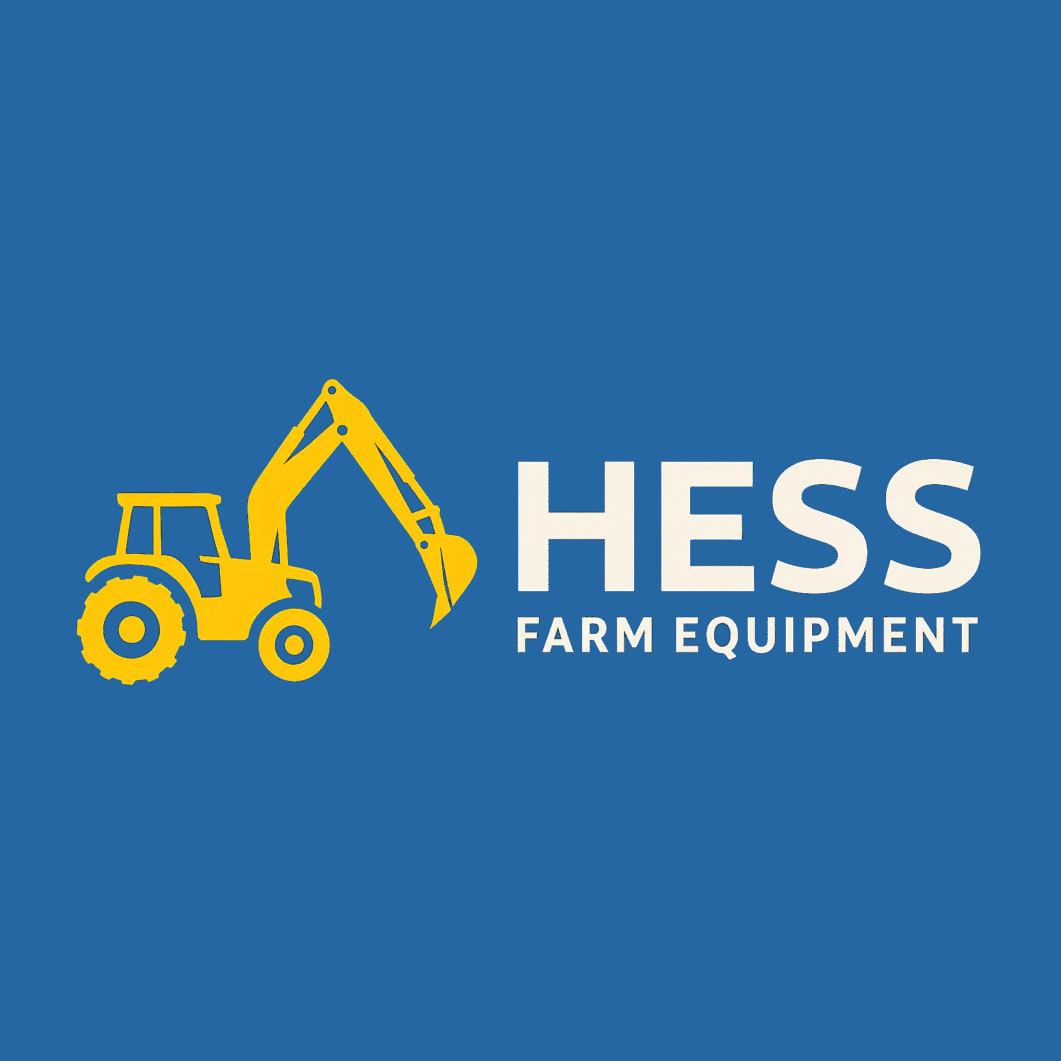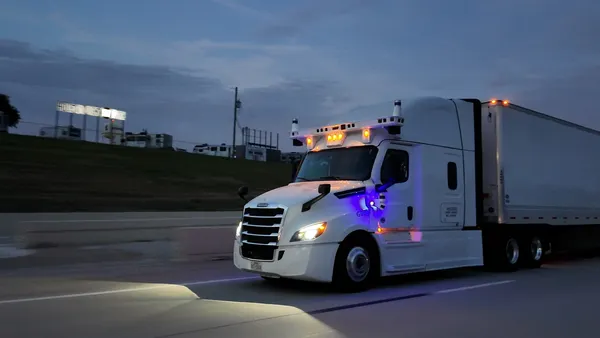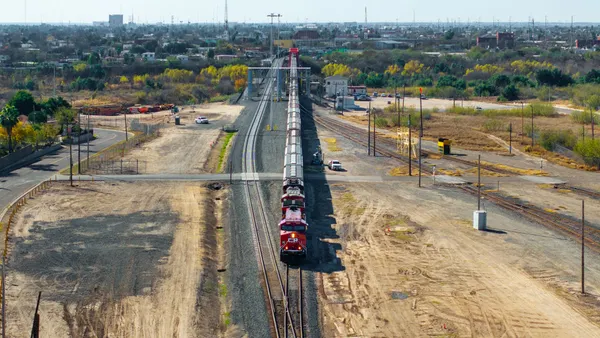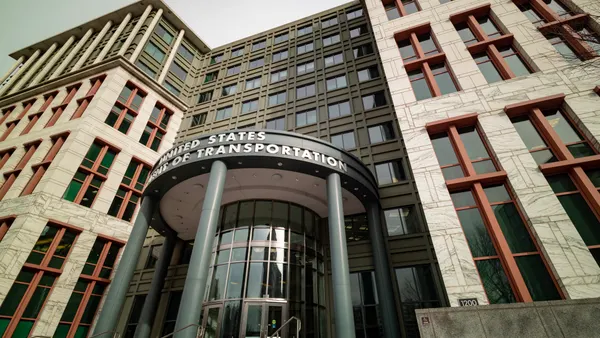Editor’s note: This is the first story in a series about trucking companies’ clashes with investors over environmental reporting and goal-setting proposals.
Major trucking companies are rejecting calls by investment firms for strategies to reduce greenhouse gas emissions.
Boards for Paccar, Knight-Swift Transportation Holdings and Old Dominion Freight Line are recommending votes against proposals involving goal setting and lobbying disclosures, which are slated to go before shareholders at upcoming annual meetings.
The U.S. truck manufacturing, truckload and LTL giants’ stances show tension between companies and some investors who argue companies need to do more to fulfill their corporate responsibility. In rejecting the proposals, the businesses defended their track records in environmental stewardship.
For Paccar’s annual meeting on April 30, Morgan Stanley-owned Calvert Research and Management is pressing the OEM for more accountability.
The investment firm wants Paccar to provide an annual report on its lobbying and policy efforts, detailing how those events align with the Paris Agreement’s goal to reduce global warming. Calvert’s proposal also wants the company to address any misalignment between the environmental treaty and the OEM’s lobbying activities.
At last year’s annual meeting, shareholders voted 47% in favor and 53% against the proposal.
This year, Paccar’s board again advised shareholders to vote against the measure, saying an annual environmental report already does this.
The board also said the OEM “is a global environmental leader and is recognized for its innovative trucks with battery-electric, hydrogen combustion, hydrogen fuel cell and natural gas powertrains,” noting Kenworth, Peterbilt and DAF brands have many zero-emission models in production.
The company also launched a joint venture last September with Cummins and a Daimler subsidiary to create a multibillion-dollar commercial truck battery plant.
“PACCAR’s sustainability leadership enhances the environment, improves customers’ operations and benefits stockholders,” the board said.
As the Environmental Protection Agency pursues its Phase 3 greenhouse gas emissions, OEMs will have to find ways to comply with more stringent standards — up to 40% tougher for day and sleeper cabs connected to trailers compared to Phase 2 standards for model year 2032.
The agency anticipates manufacturers can meet the goal with diverse solutions, such as zero-emission technologies, traditional internal combustion engine vehicles and other alternatives, like hybrids, the EPA told Trucking Dive in an email.



